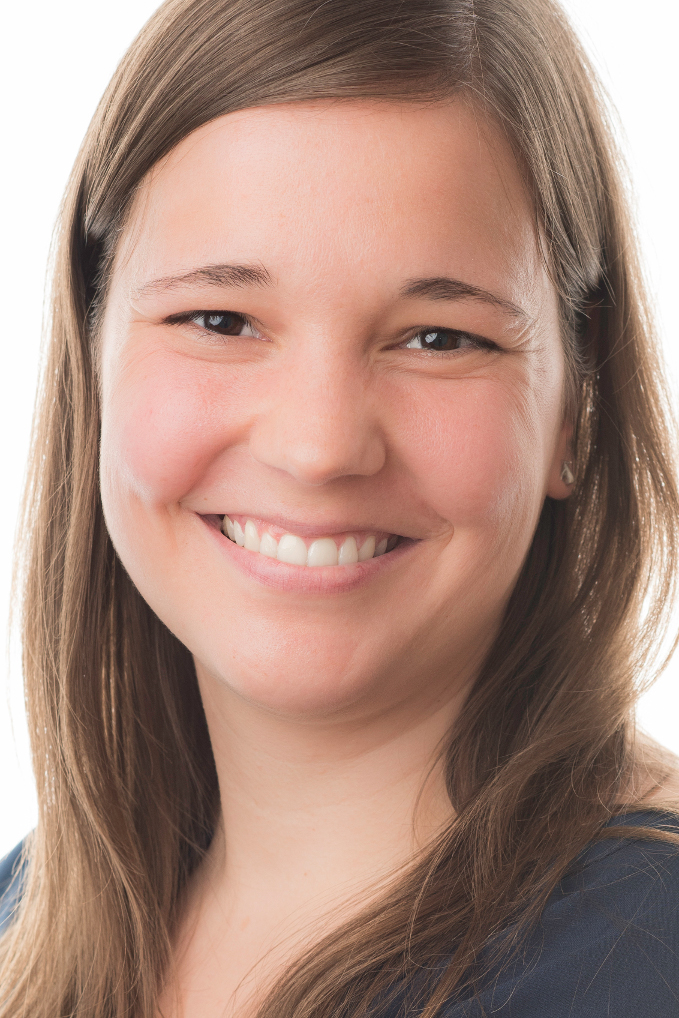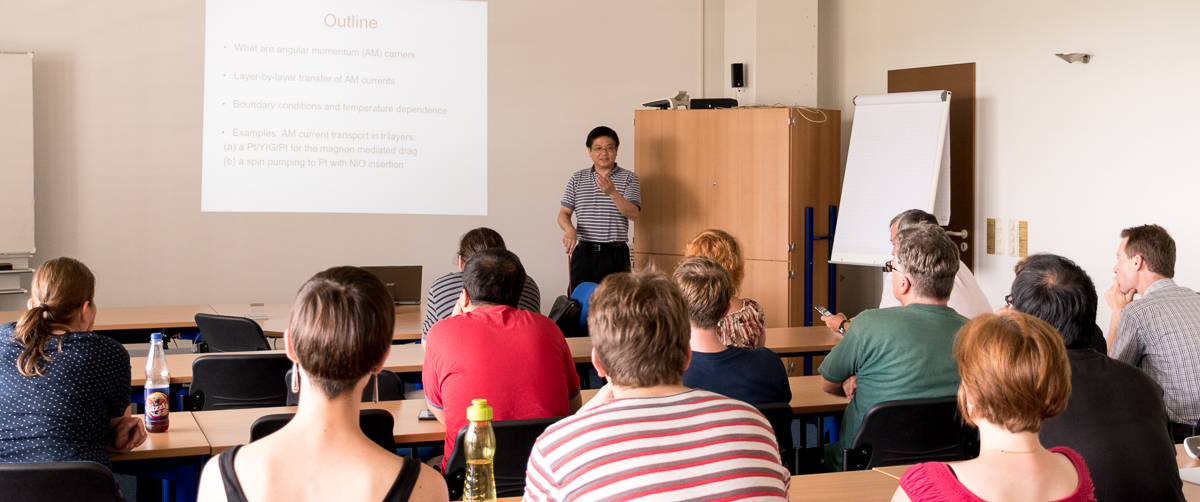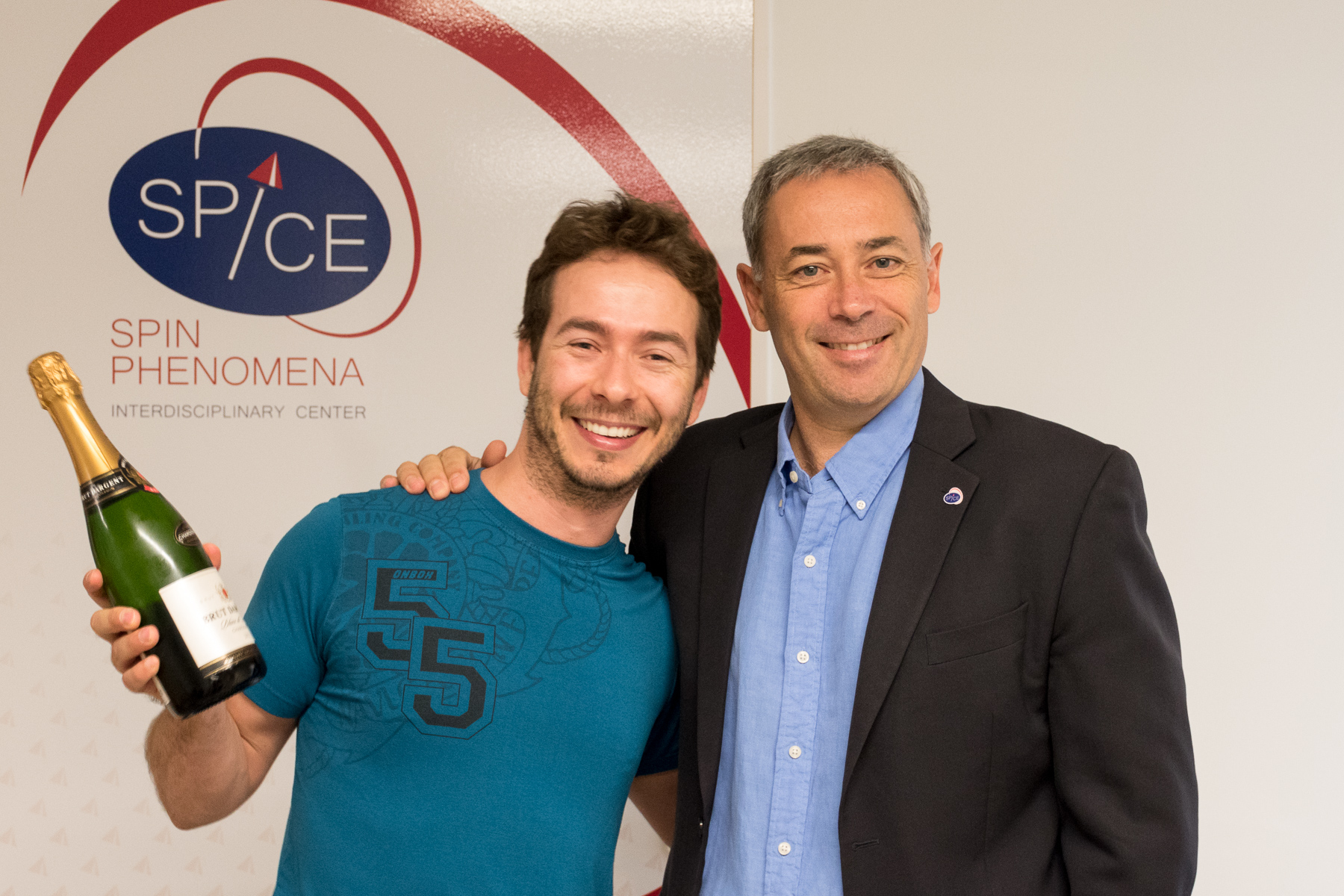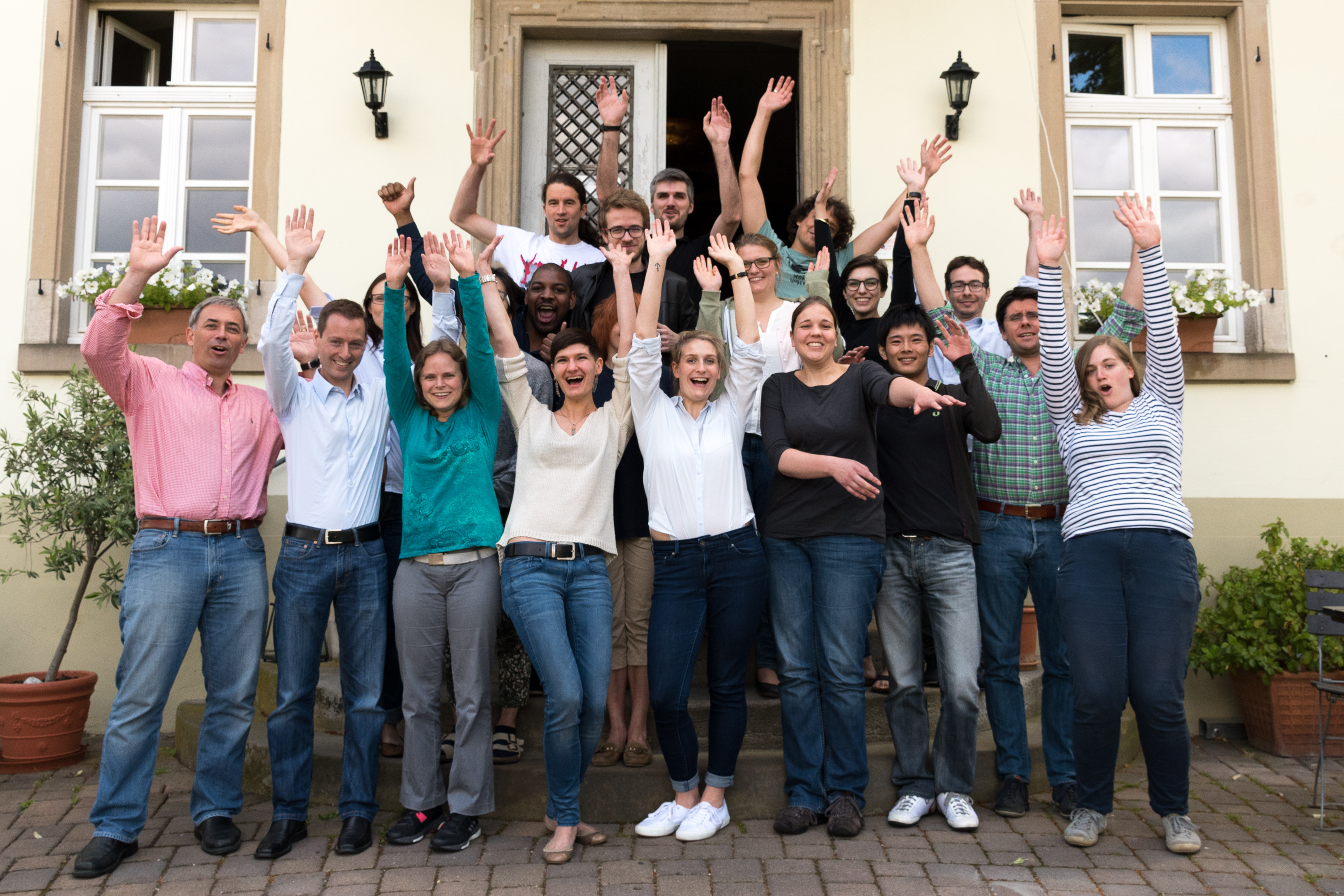Marie Hervé from the group of Wulf Wulfhekel at Karlsruhe Institute of Technology visited us to present her work on new resonance techniques in spin-polarized scanning tunneling microscopy and ultra-thin films exhibiting non-collinear magnetic structures. We had two very interesting days together in Mainz. Let's join forces to understand spin-transfer torques on the atomic scale!
News
29.03.2017 – Visit of Marie Hervé
17.03. 2017 – Meet us at the DPG Spring Meeting 2017!
You can find us in Dresden from March 19-24, where we present our work at the DPG Spring Meeting of the Condensed Matter Section.
Consult the conference program for more details.
15.02.2017 – Joo-Von Kim revisited the INSPIRE Group
 Joo-Von Kim from the Centre for Nanoscience and Nanotechnology/CNRS/Université Paris-Sud in Orsay visited the INSPIRE Group for several days. He gave an insightful talk about "Skyrmion dynamics in nanostructures: Breathing modes, oscillators, and the role of disorder". We enjoyed the discussions about skyrmion simulations and hope to see him again soon!
Joo-Von Kim from the Centre for Nanoscience and Nanotechnology/CNRS/Université Paris-Sud in Orsay visited the INSPIRE Group for several days. He gave an insightful talk about "Skyrmion dynamics in nanostructures: Breathing modes, oscillators, and the role of disorder". We enjoyed the discussions about skyrmion simulations and hope to see him again soon!
20.12.2016 – INSPIRE Group & Kläui Lab opened new Communication Zone
 Yesterday, after three months of planning and construction, Jairo Sinova and Mathias Kläui opened the new Communication Zone. The shared communication space will be open for all members of the INSPIRE-Group, SPICE, the Kläui-Lab and their guests. The ComZone allows both groups to meet, discuss and work together on projects in a nice and modern working environment.
Yesterday, after three months of planning and construction, Jairo Sinova and Mathias Kläui opened the new Communication Zone. The shared communication space will be open for all members of the INSPIRE-Group, SPICE, the Kläui-Lab and their guests. The ComZone allows both groups to meet, discuss and work together on projects in a nice and modern working environment.
At the inauguration both group leaders were looking forward to even more interchange between the groups: "Whether you're just having a discussion over a cup of coffee, or a large scientific meeting, the new ComZone will be the perfect place for you. We like to thank the institute of physics for making this possible, as well as everybody who was involved in this project."
04.11.2016 – INSPIRE Group Welcomes New Team Members
We are very pleased to welcome Bertrand Dupé and Melanie Dupé, Kyoung-Whan Kim, Marie Böttcher and Uday Chopra to the INSPIRE group. Bertrand Dupé joined us as an interim professor and team leader. Melanie Dupé and Kyoung-Whan Kim, both postdoctoral researcher, add perfectly our team as well as Marie Böttcher and Uday Chopra, who joined us as PhD students.
05.10.2016 – Emmy Noether Research Group TWIST Researches New Magnetic Structures for Spintronic-Applications
Read the full article here: IDW Online: Emmy Noether Research Group
01.08.2016 – Ulrike Ritzmann joined the INSPIRE Group

We are very pleased to welcome Ulrike Ritzmann to the INSPIRE group. Before Ulrike joined our group, she had a Postdoc position in Prof. Ulrich Nowak's group at the University of Konstanz. Her research interest lies in the field of spin caloritronics, that combines the interplay of heat, charge and spin. In magnetic materials, temperature gradients can excite spin currents mediated via the so-called magnons, which are the excitations of the magnetic system. By using atomistic spin model simulations, she studies the thermally driven magnon propagation and its characteristic length scale in different magnetic materials starting from ferromagnets to two-sublattice materials like antiferromagnets and ferrimagnets.
26.07.2016 – Shufeng Zhang visits the INSPIRE Group
Shufeng Zhang from the University of Arizona visited our group in July and gave an inspiring talk on "Angular momentum transport in magnetic structures".
14.07.2016 – Amaury Souza received the Alexander von Humboldt-Foundation Research Fellowship
Brilliant news for the INSPIRE group: We are very pleased to announce that Amaury Souza received the Research Fellowship of the Alexander von Humboldt Foundation. As the group knows how to celebrate, we took the opportunity to celebrate his achievement with a traditional and popular dish from his home country Brazil: Pão de Queijo (Cheese Bread). We wish him all the best and much inspiration for his future research projects as a part of the INSPIRE group!
04.07.2016 – INSPIRE Group Workshop in Sörgenloch
On July 4th and 5th the INSPIRE group had an internal group workshop in the picturesque village of Sörgenloch close to Mainz. In the nice atmosphere of Schloss Sörgenloch the INSPIRE group focused on team building processes and internal working strategies. The group also used the occasion to welcome Ulrike Ritzmann, as well as Bertrand Dupé and Marie Böttcher, who will join the group in October 2016. After a very successful first day, the group enjoyed the food and a variety of local wines served on the Schloss Sörgenloch terrace in the evening. On the second day of the workshop the group worked on presentation techniques and communication skills under the guidance of two coaches from an improvisational theater. We thank the participants for two beautiful and very successful days in Sörgenloch.



